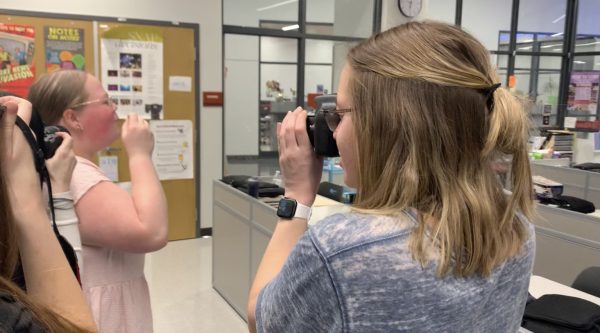Vietnam prisoner of war visits Central Pa.
Soaring into the past. Robinson smiles while remembering his service as a flying maintenance individual. He explained that he maintained the airplane as well as flew with it. Robinson said, “It always made the pilot feel good that the guy who was working on the airplane was willing to get on it.”
In November of 1961, Bill Robinson was looking for a home. He decided to sign up for the military draft. This decision would transform his life forever.
Robinson, the longest-surviving Vietnam prisoner of war, shared his story with students and teachers in the Black Box Theater on Thursday, Sept. 29 at 2 p.m.
Robinson spent a total of 23 years in service as a flying maintenance individual in the United States Air Force, 11 of which he spent as a commission officer.
Finding a home
Robinson first got involved with the military when he signed up for the draft at 18 years of age. The Vietnam prisoner of war explained the reasoning behind this choice.
“In my day, at 18, we would sign up for the draft. We [applied for] employment, the employer would ask you if you’d had your obligation over with. If you said no, then [the employers] would say come back and talk to us when you get that taken care of. They didn’t care whether you were 4-F [not qualified] or whether you served, but they didn’t want to invest money in you, and then you had to get up and leave,” Robinson said.
He added that he joined the military to “get it over with” and to move on with life. Robinson also noted that it was an honor for him to have been a part of the United States Air Force.
“I grew up where my family members had served in the Armed Forces, and I was raised by them that it was my responsibility to share some of my time for my country. It has always been an honor to wear the uniform, especially of the United States Air Force. Even in the toughest of times, I never regretted putting on the uniform,” Robinson said.
‘The longest days of my life’
In September of 1965, Robinson was captured by the Vietnamese. He described what he experienced in the seven-and-a-half years afterward as a prisoner of war.
“It was minutes, hours, days, weeks, months and even years of boredom punctuated by terror… I was first tortured for military information, and then later on I was tortured for propaganda purposes. Towards the end of the Korean war, [militaries] started using prisoners of war as part of their propaganda to motivate their people to fight against the Americans. And the Vietnamese did the same thing to us. They used us as a motivation to energize their people to fight against [the Americans],” Robinson said.
I’m the type of person that counts my blessings, not my misfortunes. — Bill Robinson
After months and years of torture, the prisoners of war were released from Feb. 12 to March 29, 1973. The Vietnamese negotiated and signed an agreement in January of the same year that prompted the release.
“Those were probably the longest days of my life because I had to leave my brothers behind. We were hounded when we came home by the press, wanting to know our story. We [refused]–not until everyone [had] been released. We did not want to do anything that would jeopardize their homecoming. We had ours and they should have theirs,” Robinson said.
Fifty-eight-thousand soldiers did not return.
“I feel very fortunate that I got to come home while others didn’t. I got to be with my family again while others didn’t. I’m the type of person that counts my blessings not my misfortunes. My glass is never half-empty; it’s always half-full,” Robinson said.
Making a difference
Decades after the release, Robinson visited the Black Box Theater in Blair County and shared his story with students.
He explained the reason behind his visit.
“I do it a lot for the teachers. For the teachers, I can give first-hand experience that many teachers have not had that opportunity… It’s important that we all take part in what built this country. It was built on service and sacrifice,” Robinson said.
He also offered some advice to high school students considering military service.
“I encourage any one of [the students] to look at it. It’s quite an honor when you think that less than one out of five people qualify for our military due to circumstances that they [themselves] control. And so, for them just to meet those qualifications is quite an accomplishment in today’s society. I encourage all of those who consider the military to make sure they’re running to something rather than running from something. That’s what we have to do in life… And don’t join for the educational benefits. Join because you love your country and you want to make a difference,” Robinson said.
After two decades of experience in the air above the battlefield, Robinson described what he wishes people would never forget.
“We need to spend more time appreciating our nation rather than criticizing our nation. We have faults, and we have disagreements. But we’re still the greatest nation on Earth. Never forget that,” Robinson said.

Ciao! My name is Melissa Krainer, and this is my second year reporting for the Mountain Echo. I’m very excited to be a part of the staff this year as...

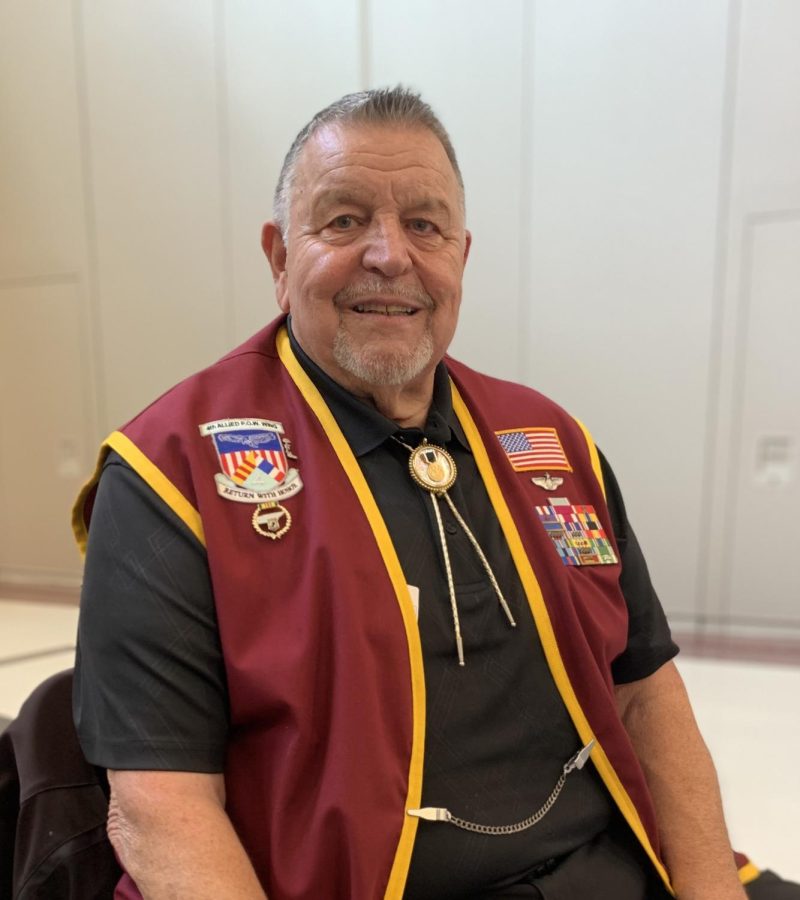
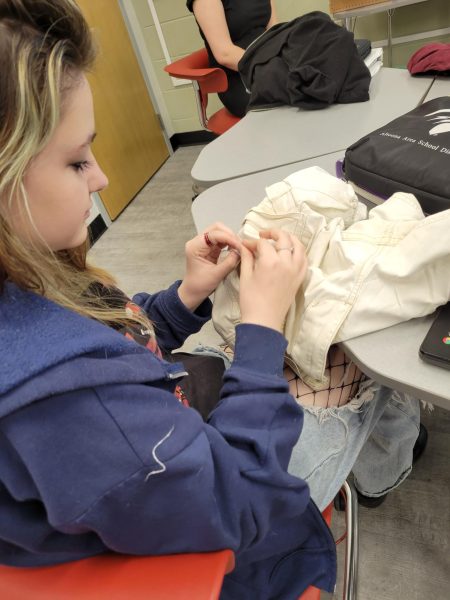
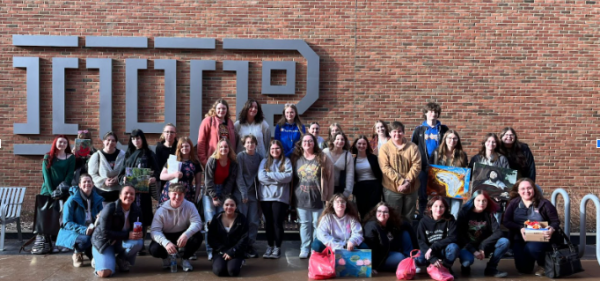
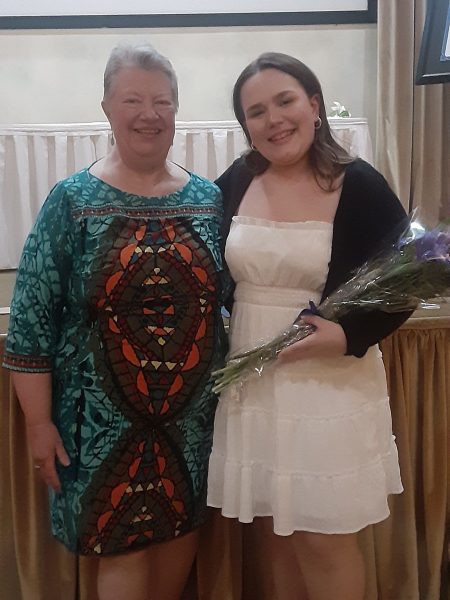
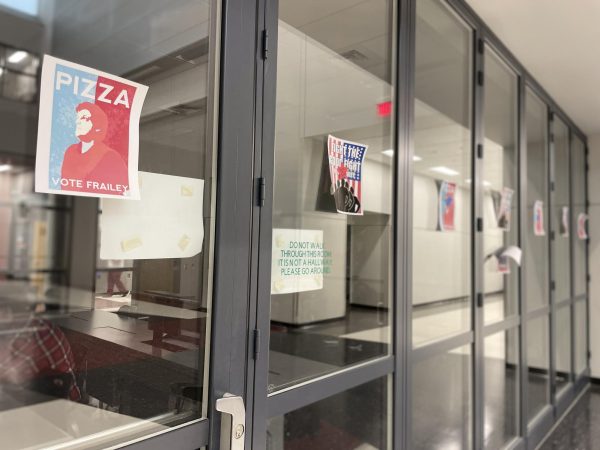
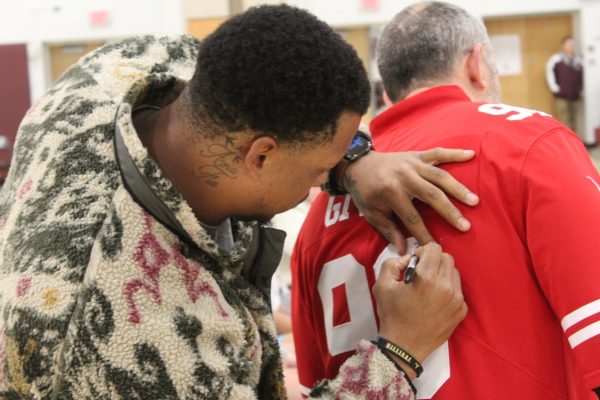
![Chemistry Champion. Chemistry teacher Christine Falger was designated a comic book superhero during the 2023-2024 school year. She poses with her seventh period honors chemistry class, accepting the award. This is a result of the Climate and Culture squads work around the school, which focuses on building teacher morale. [Being part of a squad] is a big time commitment. We as a squad are required to give one hour of time a month, I am probably anywhere from eight to 12 hours a month, Krug said. [But the squads work] can make the high school a better place. I am really lucky to work with a number of teachers who also feel the same way. Even if we are doing more than some squads at the high school, we still feel like what were doing is really important.](https://aahsmountainecho.com/wp-content/uploads/2024/04/Chrissy-Falger-Comic-Book-Superhero-Honors-Chemistry-1-e1712174011111-600x369.jpg)
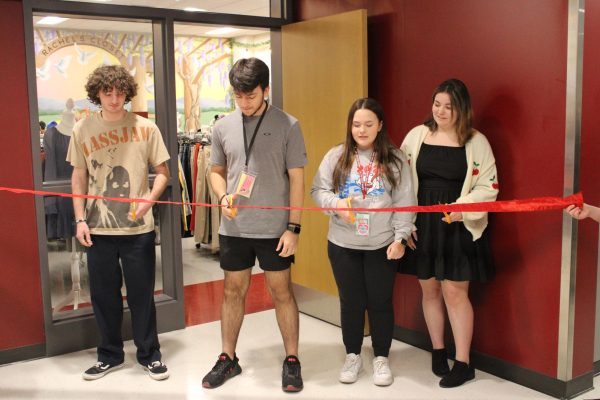


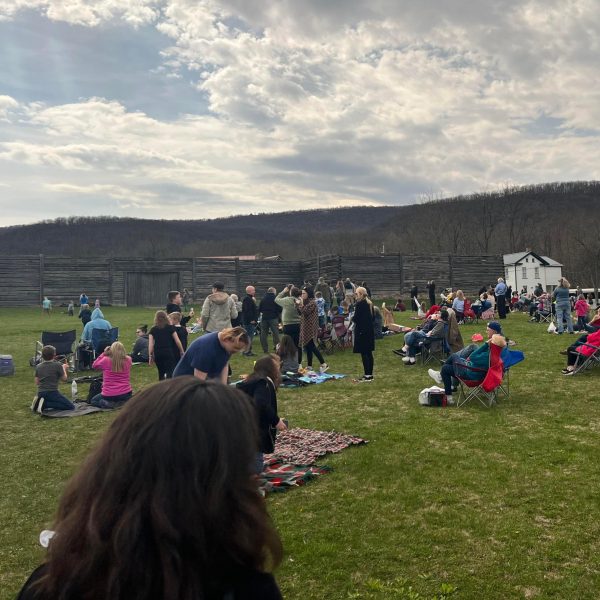
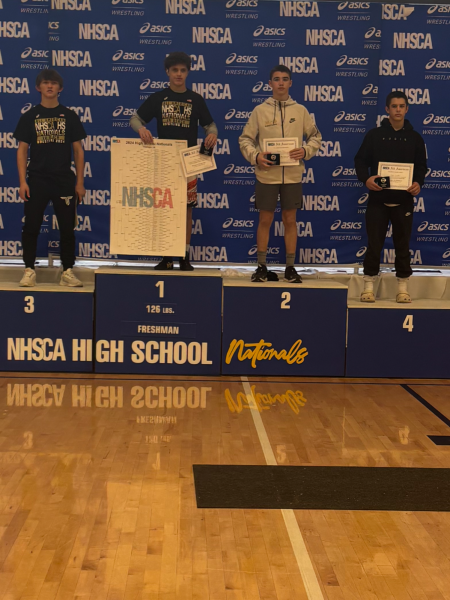
![Dedicated. Teachers who live far away commute for at least an hour to work each day. [Made with Canva]](https://aahsmountainecho.com/wp-content/uploads/2024/04/teacher-commute-picture-424x600.png)
